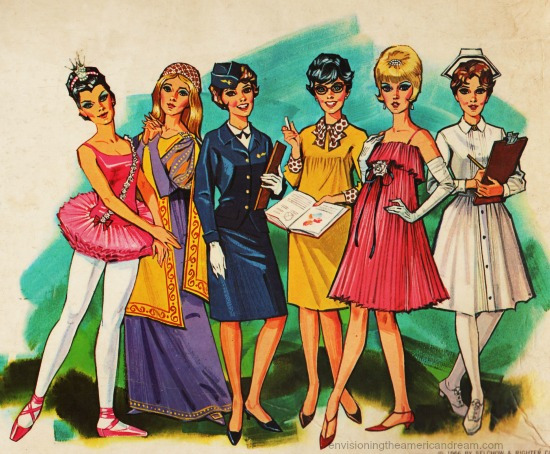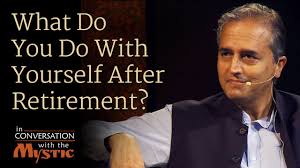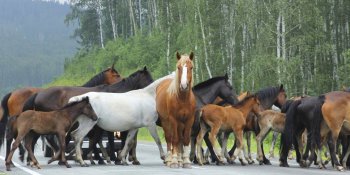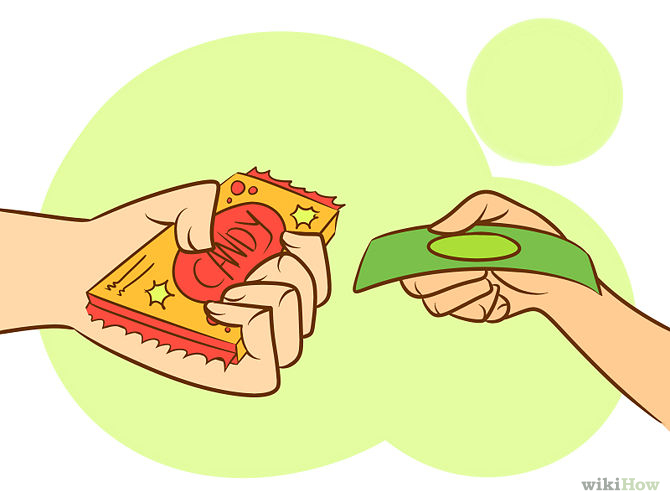Why is Change Essential?

- Change is inevitable.
- "The only thing constant in life is change".
- Yet, we are hopelessly clumsy at managing change.
- We all resist change in some way or the other. We don't want it or are afraid that it may bring discomfort to us. Many of our actions show our resistance.
- Here is a Monkey story On resistance to change.
A group of scientists placed 5 monkeys in a cage and in the middle, a ladder with bananas on the top.











- A group of scientists placed 5 monkeys in a cage and in the middle, a ladder with bananas on the top.
- Every time a monkey went up the ladder, the scientists soaked the rest of the monkeys with cold water.
- After a while, every time a monkey went up the ladder, the others beat up the one on the ladder.
- After some time, no monkey dare to go up the ladder regardless of the temptation.
- Scientists then decided to substitute one of the monkeys. The 1st thing this new monkey did was to go up the ladder. Immediately the other monkeys beat him up.
- After several beatings, the new member learned not to climb the ladder even though never knew why.
- A 2nd monkey was substituted and the same occurred. The 1st monkey participated on the beating for the 2nd monkey. A 3rd monkey was changed and the same was repeated (beating). The 4th was substituted and the beating was repeated and finally the 5th monkey was replaced.
- What was left was a group of 5 monkeys that even though never received a cold shower, continued to beat up any monkey who attempted to climb the ladder.
- We might be many a times thinking why we continue to do what we are doing if there is a different way out there.
- Suppose a new monkey was introduced into the cage. It ran toward the ladder only to get beaten up by the others. Yet, this monkey turned around and asked "why do you beat me up when I try to get the banana?" The other four monkeys stopped, looked at each other slightly puzzled and, finally, shrugged their shoulders : "Don't know. But that's the way we do things around here"
- This story reminds me - of quite a few of the organizations we have seen. Over the years, all firms develop routines, habits and practices, which we call the firm's "ORGANISATIONAL CULTURE". Always, these habits and conventions have been developed over the course of many years. Very often, nobody actually remembers why they were started in the first place... Quite possibly, the guy with the water hose has long gone. Don't just beat up the new monkey - whether it is a new employee, a recent acquisition or a partner; their questioning of "the way we do things round here" may actually be quite a valid one.
Change Game : Change Your Look

- Number of participants : pairs of two
- Number participants in groups of 2 and have each pair stand facing each other.
- Ask the participants to determine which one will observe and which one will make the changes.
- Tell the observer to study their partner closely because their partner will be making a few changes.
- Next, the observer from each pair should turn their back and close their eyes and ask the other person to make at least five changes to their physical appearance.
- For e.g. moving their watch from one wrist to the other, removing a shoe, taking off jewelry or a tie, or removing their glasses.
- Give participants 30 seconds to complete the changes.
- Participants will face each other again, all eyes open and ask the partner to identify as many changes as possible. Allow about 30 seconds for this.
- Resistance to change
Resistance to Change.
- Non verbal clues
- Changing the subject
- Leaving the room
- Being late
- Doing something else deliberately.
- Looking away out of the window
- Flipping through a magazine
- Refusing to pay attention
- Fidgeting with your mobile.
Denial


- This form of resistance shows up in denial for any change.
- I can't do anything about this problem.
- What good would it do to change.
- If I ignore it , maybe the problem will go away.
- FEAR- By far the biggest category of resistance. Fear of the unknown.
- I might fail.
- They might reject me.
- What would the neighbors think?
- I don't want anyone to know I have a problem.
- I don't want to talk about it.
- Who knows where I might end up.
- I may loose my freedom.
- It might hurt my image.
- I'm not good enough.
Assumptions
- We often assume things about others to justify our resistance. We make statements such as :
- It wouldn't do any good anyway.
- My husband/wife won't understand.
- I have to change my nature/ personality which is impossible.
- He/ they cannot help me in this case.
- My case is different.
Them
- We take excuse of others to show our resistance to change.
- God will not approve of it.
- They won't let me change.
- They will not understand.
- I don't want to hurt them.
Beliefs
- We grow up with belief that become our resistance to change.
- It's just not right.
- It's not right for me to do that.
- My family will not approve of it.
- I'm not that kind of a person.
- It's against my upbringing, religion, philosophy.
Self Concepts
- We have ideas about ourselves that we use as limitations or resistance to changing. We are
- Too old to do it now.
- Too young, too fat, too thin, too short, too tall,
- Too weak, too smart, too serious type, may be it's just too much.
Delaying tactics
- Our resistance often expresses itself as delaying tactics.
- We use excuses like I'll do it later. I can't think right now. I don't have the time right now. It would take too much time away from my work. Yes, that's a good idea; I'll do it some other time. I have too many other things to do.
Why Is Bringing Change In A System Difficult?
- There is nothing more difficult to carry out, nor more doubtful of success, nor more dangerous to handle than to initiate a new order of things. For the reformer has enemies in all those who profit by the old order, and only lukewarm defenders in all those who could profit by the new order. This attitude arises from the incredulity of mankind "who do not truly believe in anything new until they have had actual experience with it."
Why do we need to change?
- How good a thing is now, may not be so after some time.
- Sometimes when we try to bring change, the whole situation seems to get worse for a while.
- This is not a bad thing. It is a sign that the situation is beginning to move. The only thing needed is not to give up and keep going.
- Sometimes we need to bring drastic change to survive in the new scenario.
The Typical Change Process
- A key person has a 'brilliant idea'.
- He is in a tearing hurry to implement it.
- He is totally insensitive to the 'immune system' of his organization.
- He follows through unilaterally. Result :
- -Surprise -Anger -Rejection
An Alternative Approach
- The brilliance of an idea is not sufficient.
- Change strikes fear in our subconscious mind.
- Therefore, it must be communicated well—and be understood clearly.
- The time invested in this preparatory phase of communicating the need for change is vital for the success of any change effort.
Adapting to change (who moved my cheese)
- Is a story about change that takes place in a maze (Complex system of paths or tunnels in which it is easy to get lost ) Where 4 amusing characters look for CHEESE. Cheese being a metaphor for what you want to have in life, whether it is a job, a relationship, money, freedom, recognition. Each of us have our own idea of what cheese is and we pursue it because we believe it makes us happy. If we get it, we often become attached to it. And if we lose it or is taken away, it can be traumatic.
Parts of all of us
- The 4 imaginary characters depicted in this story are - the mice : Sniff and Scurry, and the little people : Hem and Haw. These characters represent simple and the complex parts of ourselves. Sometimes we may act like Sniff, who sniffs out change early, or Scurry , who scurries into action or Hem who resists change as he fears it will lead to something worse, or Haw who learns to adapt in time when he sees change can lead to something better. Whatever parts of us we choose to use, we all share something in common : A need to find our way in the maze and succeed in changing times.
The Story
- Once , long ago in a land far away, there lived 2 mice named Sniff and Scurry and 2 little people named Hem and Haw. These people acted a lot like people today. These 4 spent their time in the maze looking for cheese to eat.
- The mice Sniff and Scurry possessing simple brains and good instincts, searched for their cheese. They used simple trial and error method of finding cheese. They ran down one corridor and if it proved empty, they turned and ran down another. Sniff would smell out the general direction of the cheese using his great nose, and Scurry would race ahead. They got lost, as you might expect, went off in the wrong direction and often bumped into walls. But after a while, they found their way.
- The 2 little people Hem and Haw used their complex brains, filled with many beliefs and emotions, to find their special cheese which they believe will make them happy.
- So all 4 discovered in their own way what they were looking for. Each of them found their own kind of cheese one day at the end of one of the corridors in Cheese Station C.
- Every morning all 4 woke early, raced through the maze always following the same route to reach to Station C to enjoy the tasty cheese. But after a while a different routine set in for the little people. Hem and Haw awoke each day a little later, dressed a little slower, and walked to cheese station C. After all they knew where the cheese was now and how to get there. They became very comfortable now that they had found the cheese. This is great. There is enough here to last us forever. The little people felt happy and successful and thought they were now secure.
- It wasn't long before Hem and Haw regarded the cheese of this station as their own cheese. To make themselves feel more at home they drew pictures of cheese around them. One read : Having cheese makes you happy.
- Hem's and Haw's confidence grew into arrogance. They became so comfortable that they did not notice what was happening.
- In contrast Sniff and Scurry had noticed the supply of cheese dwindling. They were not surprised when one day they discovered no cheese at station C. They did not overanalyze things. The situation at cheese station C had changed. They were quickly off in search of new cheese.
- Later that same day, Hem and Haw arrived at station C. They were unprepared for what they found." Who moved my cheese" Hem hollered. His face red he screamed 'its not fair'.
- Finding cheese meant a great deal to the little people than just enough to eat. It was like having material things, or good health, feeling safe, living a cozy life or even owning a big house. They could not compromise with no cheese.
- They ranted and raved at the injustice of it all. They could not believe it. How could this have happened? No one had warned them. It was not the way things were supposed to be. Hem and Haw went home that night hungry and discouraged. But before they left, Haw wrote on
The wall THE MORE IMPORTANT YOUR CHEESE IS TO
YOU, THE MORE YOU WANT TO HOLD TO IT. - The next day Hem and Haw came back to the same station C where they still expected, somehow to find their cheese. The situation hadn't changed.
- Hem felt so depressed that he wanted to block everything out. He didn't want to know the cheese supply had gradually been getting smaller. He believed it had been moved all of a sudden.
- Haw the more adaptable of the 2 looked around and said," by the way, where are Sniff and Scurry? Do you think they know something we don't? Though we are smarter, we are not behaving that way now. Maybe we need to change and do things differently.
- Hem - " Why should we change?" We are special , this sort of thing should not happen to us.
- Haw - Maybe we should stop analyzing the situation and go and find some new cheese.
- The little people became more and more frustrated and started blaming each other.
- Sometimes, Haw would imagine Sniff and Scurry finding new cheese and enjoying it. Haw could even see the image of himself finding cheese and all of a sudden said let's go.
- Hem - Quickly objected to that and said he was not interested in getting lost .
- The fear of failing returned and his hope of finding new cheese faded.
- This went on for some days till finally one day Haw began laughing at himself
- Haw - Look at us. We keep doing the same thing over and over again and wonder why things don't get better. By now it is high time to realize that yesterday's cheese is never going to come back. It's time to find new cheese.
- This thought suddenly made him feel happy. He realized that things change and they are never the same again. That's life. Life moves on, and so should we.
- Haw tried to bring sense to his friend. But Hem's fear had turned into anger and he would not listen. So before leaving the place Haw wrote,"
- If we do not change, we become extinct.
- Haw tried to find his way in the maze. He worried at first that he might have waited too long in cheese station C. He felt weak due to lack of cheese for a long time. This made him to decide that if he ever got a chance again, he would get out of this comfort zone and adopt to change sooner. "ANYWAY BETTER LATE THAN NEVER".
- During the next several days he tried hard but many a times when he was getting ahead, he would be lost in the corridors. It seems his progress was 2 steps forward and 1 step backward. It was a challenge, but he had to admit that being back in the maze, hunting for cheese, wasn't nearly as bad as he feared it might be.
- Whenever he started to get discouraged, he reminded himself that what he was doing may seem uncomfortable at the moment, was in reality much better than staying in a cheese less station. He was taking control rather than simply letting things happen.
- Later, as Haw looked back on things, he realized that the cheese at station C had not just disappeared overnight, as he had once believed. The amount of cheese that had been there towards the end had been getting smaller, and what was left had grown old, don't taste good. This made him admit that had he wanted to, he probably could have seen what was coming.
- He also realized that change probably would not have taken him by surprise if he had been watching what was happening and anticipated change. May be Sniff and Scurry were smarter than them after all.
- He stopped for rest and wrote on the wall, ' Smell the cheese often so you know when it is getting old'.
- When he found empty stations, he felt like giving up. He wandered if Hem had moved on, or if he was still paralyzed by his own fears. Then he realized that he felt his best, when he was moving along. He wrote on the wall " Movement in a new direction helps you to find new cheese."
- To his surprise, Haw gradually started to overcome his fear and helplessness and started to enjoy himself more and more." Why do I feel so good?" He wondered, "I don't have any cheese and I don't know where I am going". Then he realized and wrote" When you stop being afraid, you feel good.'
- Haw hadn't felt this way for a long time. He had almost forgotten how much fun it was to go for it. Now he could see the image of himself enjoying new cheese. The more he believed this he could sense that he was very close in finding it. He wrote Imagining yourself enjoying your new cheese leads you to it.
- He became positive and analyzed what he would gain instead of what he was losing. Now he realized that change could lead to something better.
- He stopped to write on the wall 'The quicker you let go of old cheese, the sooner you find new cheese.
- After a while Haw made his way back to cheese station C and found Hem. He offered Hem bits of new cheese, but his friend turned it down saying that he wanted his own cheese back and 'I will not like to change'.
- Haw went back into the maze. He realized that it was just not that finding new cheese made him happy. He was happy because he had overcome fear. He felt that it was a matter of time before he found cheese. He wrote 'It was safer to search in a maze than remain in a cheeseless situation.
- Just looking ahead was becoming exciting.
- Haw realized that it is natural for change to occur, whether you expect it or not. When he realized he had changed his beliefs, he paused to write on the wall 'Old beliefs do not lead you to new cheese'. He now realized that his new beliefs were encouraging new behaviors. He realized that when one changes what he believes, you also change what you do.
- He again wrote ' Noticing small changes early helps you to adapt to bigger changes that are to come.'
- By now Haw had let go of the past and was adapting to the present. He continued through the maze with greater strength and speed. He proceeded along the corridor and found new cheese at station N. He was startled to see piles of cheese everywhere. Then he wondered for a moment whether it was real or just his imagination, until he saw his old friend Sniff and Scurry. Sniff and Scurry welcomed him. Their bulging bellies showed that they had been here for some time.
- Haw said 'Hooray' for change. He laughed and realized that he had started to change as soon as he had learned to laugh at himself and what he had been doing wrong. He realized that one who can laugh at his own folly can let go and quickly move on.
- He realized that one should keep things simple, be flexible and move quickly. One should not overcomplicate matters, confuse oneself with fearful beliefs.
- One needs to adapt faster, for if you do not adapt in time, you may not adapt at all.
- The biggest inhibitor to change lies within yourself. Nothing gets better till one changes . You are rewarded with it when you go past your fear and enjoy the adventure.
- He knew that some fear should be respected, as it can keep one out of real danger. But most of the fears are irrational and had kept him from changing when he needed to. With change not only he found better cheese but a better part of himself.
- He also realized that Hem his friend had to find his own way, beyond his comfort and past his fears. No one else could do it for him. He had left a trail for Hem to find his way.
- Haw also realized that it would be easy for him to slip back if he got too comfortable. So he kept himself alert to changes and avoid being surprised by
- unexpected change. He wrote :
- Change happens, they keep moving the cheese.'
- Anticipate change. Get ready for the cheese to move.
- Monitor change, smell the cheese often so you know when it is getting old.
- Adapt to change quickly. The quicker you let go of old cheese, the sooner you can enjoy new cheese.
- Enjoy change, savor the adventure and enjoy the taste of new cheese.
- Be ready to change quickly and enjoy it again and again.
- Can you suggest examples to show how you or group of employees of your institute have resisted to change initially and later on realized that the change which was forced on your system was essential.
- How many of us can laugh at ourselves like Haw did to realize that one needs to change with time as change is inevitable?
- Identify Sniff, Scurry, Hem and Haw amongst you.
- In any work place/ organization we have all 4 types of characters. We need to treat Sniff's, Scurry's, Hem's, and Haw's differently to get maximum out of them. Our Sniff's could sniff out changes in the market place and update our Corporate Vision. They were encouraged to identify how the changes could result in new/ better products and services our customers would want. The Sniff's loved it and enjoyed working in a place that recognized change and adapted in time.
- The Scurry's like to get things done swiftly. So they were encouraged to take actions, based on the new corporate vision. They just needed to be monitored so they don't scurry off in the wrong direction. They were then rewarded for the action that brought new cheese. They liked working in a company that valued action and results.
- Hem's are unfortunately the ones who slow progress. They were either too comfortable or too afraid of change. They usually change out of fear or temptation of better future. When such people realize that by change their security is not affected, they become a part of change process. This helped many Hem's to turn into Haw's. Those Hem's who did not change, had to leave.
- The Haw's were initially hesitant, but adapted to change quickly. It helped develop confidence and tools to change.
- One of the many real life examples on this is about
- Charlie Jones a well respected broadcaster for NBC- TV, who revealed that hearing the story of who moved my cheese changed his outlook to a problem and helped him adapt to the new situation willingly to work even better.
- Here's what happened. Charlie had worked hard and had done a great job of broadcasting track and field events at an earlier Olympic games, so he was surprised and upset when his boss told him he'd been removed from these showcase events for the next Olympics and assigned to swimming
- Not knowing these sports well, he was frustrated. He felt unappreciated and he became angry and felt it wasn't fair. His anger began to affect everything he did. Then he heard the story of 'Who moved my cheese? After that he laughed at himself and changed his attitude. He realized that his boss had just "Who moved my cheese" so he adapted. Before long he learnt the 2 new sports and in the process found that doing something new made him feel rejuvenated and young. His boss too recognized his new attitude and vigor and got him new challenging assignment and Charlie enjoyed more success in life.
- If you believe that it is hard or difficult to change a habit or a thought, then your choice of this thought will make it true for you. On the other hand if you choose to think 'it is becoming easier for me to make changes, then your choice of this thought will make that true for you.
- Controlling the mind- There is an incredible power and intelligence within you constantly responding to your thoughts and words. As you learn to control your mind by the conscious choice of thoughts, you align yourself with this power. Do not think your mind is in control. You are in control of your mind. You can stop thinking those old thoughts. Your old thinking may try to come back and resist the change process . it may try to make you feel sorry. You need to take a mental control. You may have to loudly say and convince your mind that this change is for the better.
- Our mind is like a child, it will rebel at first. For eg : you have a little child who has been allowed to stay up late as he wishes for a long time, and then you make a decision that you now want this child to go to bed at 8.00 pm every night. How do you think the child will behave at first. The child will rebel against this new rule and may kick and scream and do his best to stay out of bed. If you relent at this time, the child wins and will try to control you forever. However if you calmly stick to your decision and firmly insist that this is the new bedtime, the rebellion will lessen. In 2 or 3 nights, the new routine will be established. Same is true for the mind. It will rebel when change is enforced. But with persistence, the new way of thinking will be established. So you will see that" you are not a helpless victim of your own thoughts but rather a master of your own mind."
- Exercise : Letting go. To be done with participants.
- Take a deep breath, as you exhale, allow all tension to leave your body. Let your forehead and your face relax. Relax your tongue throat and shoulder. Relax your back and abdomen. Relax your legs and feet.
- In this relaxed, comfortable position, say to yourself, 'I am willing to let go. I release, I let go'. I would like to release all tensions, fear, anger and guilt. Now I am at peace with myself, and with all things and people around me.
- Do this exercise whenever you feel the thought of difficulty coming up. It takes a little practice for routine to become a part of you. When you put yourself into this peaceful state first, it becomes easy for your affirmations to take hold. You become open and receptive to them. Just relax and think the appropriate thoughts. See for yourself the miracle happening.
- Physical Releasing- Sometimes we need to experience a physical letting go. Experiences and emotions can get locked in the body. Sometimes to cry out will release all pent up grief and relax you. Similarly listening to music, singing aloud, playing a game, or running even counting to 100 before rushing to do something out of rage or because of other emotions can be a big release.
- Letting the past hold you back- We often refuse to realize that holding on to the past- no matter what it was or how awful it was is only hurting us. They really don't care. Usually they are not even aware. We are only hurting ourselves by refusing to live in this moment to the fullest.
- The past is over and done and cannot be changed. This is the only moment we can experience. By lamenting about the past, we are loosing the real experience of this moment in the process.
- Exercise releasing- Let us now clean up the past in our minds. Release the emotional attachment to it. Allow the memories to be just memories. It can be the same for all the past events in our lives. As we let go, we become free to use all our mental power to enjoy this moment and to create a great future. List all the things you are willing to let go of. See how much you can let go and where is your resistance level.
- Forgiveness- Finally forgiveness is to let go. When we are stuck, it is like holding on to a past moment. It can be regret, hurt, guilt, blame, anger, resentment and sometimes desire for revenge. This nature helps us to move along and pull on well with all.





































